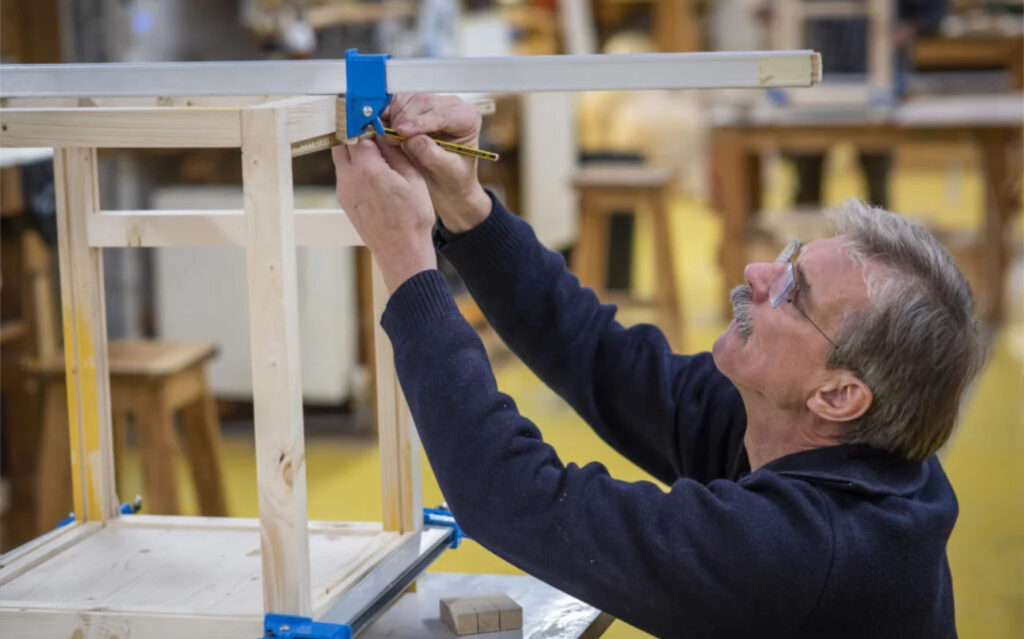This Stress Awareness Month, we wanted to highlight the positive impact woodworking can have on our mental wellbeing.
After the last two years, it’s hardly surprising that many of us are suffering from poor mental health. Sadly, according to mentalhealth.org.uk, 74% of us currently feel stressed and overwhelmed.
Fortunately, woodworking can help. The hands-on action of woodworking induces a calm state thereby releasing serotonin and dopamine in the brain. According to research, woodworking can reduce levels of cortisol, the stress-inducing hormone, by a staggering 75%!
Iain Stirling, founder of Chapelhill Fine Furniture, is one such person who left behind a fast-paced career in finance to join our Professional Course and is now enjoying a rewarding and meaningful vocation in woodworking.
Here he explains how woodworking has impacted his wellbeing.
From accountancy to furniture making
I had been working in accountancy for years when I started to ask myself where I wanted to be in five years. The question that helped me define my direction of travel was, “When you look back, would you rather have spent another five years doing what you are already doing, or would you rather take the chance and learn a craft or new skill and do something interesting?” As you get older you start to appreciate your time more and that you only have one life.
It was then that I decided to enrol on the Professional Course at the Chippendale School of Furniture.
Stress at work
Being a manager in an office you have to be a diplomat, politician, leader, guide, disciplinarian, and at the same time, you’re responsible for both your work and that of your team. There are multiple sources and causes of stress – and many of them are out of your control.
Woodworking still has its stresses, but I think the difference is that you are much more in control of them. Yes, I can worry about the quality of my woodwork – it’s easy to make mistakes – but ultimately you can always make something again or repair it.
I think when you’re self-employed, work-life balance can improve, given that you have the choice of when and how long to work. I do find that I have been sticking to a 9-5 schedule but am consciously trying to break up my week more so that I work more flexibly.

Woodworking for wellbeing
Unwinding now does not need to be after a stressful day at work. Unwinding now can be during the day because I am doing something I find genuinely enjoyable.
It is very fulfilling to be a maker. You take a design from a rough sketch all the way to a full-scale drawing and computer-rendered model. You take the wood from rough boards milled from a tree trunk, all the way through to a finished piece of furniture. Finishing a build gives me great satisfaction and when coupled with the delight of the customer, it makes for a very rewarding exercise.
Thanks to Iain for his contribution to this blog
Interested in the stress-relieving benefits of woodworking? Take a leaf out of Iain’s book and try our Professional Course here.
